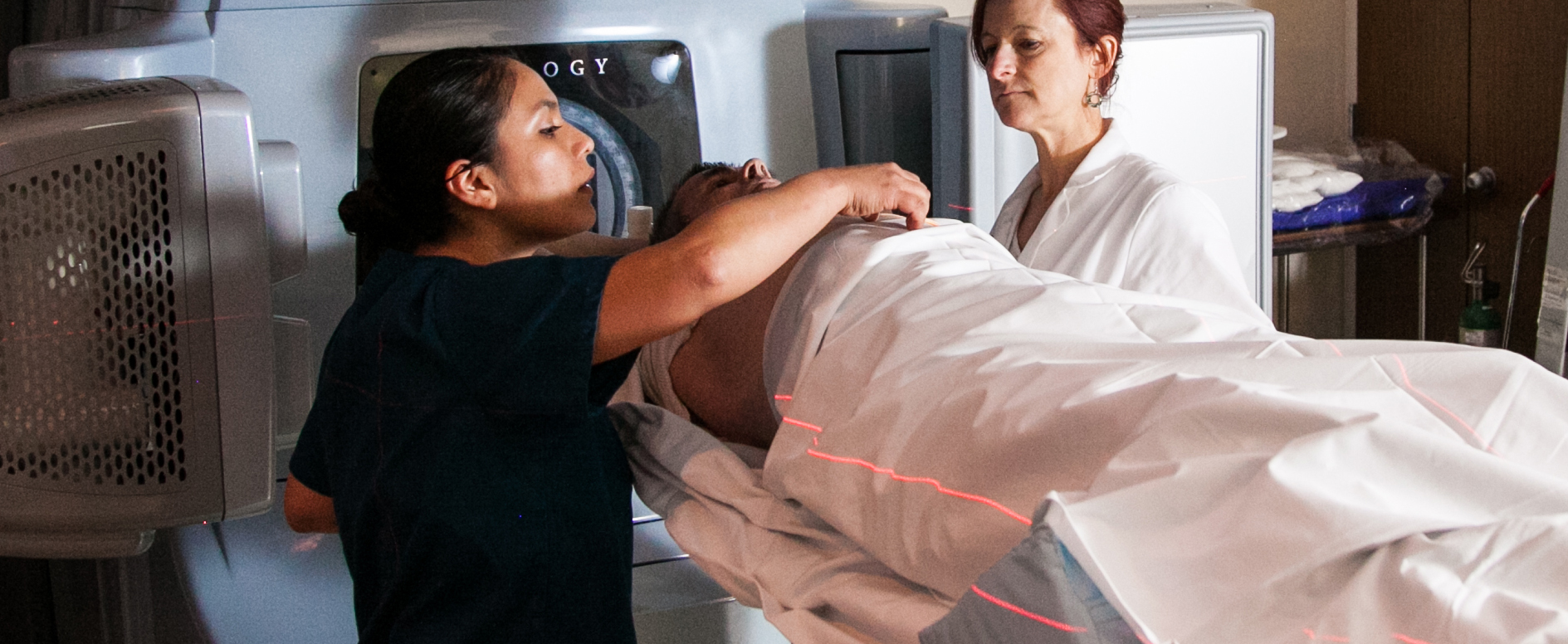
Some patients worry about the safety of radiation therapy. Radiation has been used successfully to treat patients for more than 100 years. In that time, many advances have been made to ensure that radiation therapy is safe and effective. With each advance, new quality checks have been developed to ensure safe treatment.
Before you begin receiving radiation therapy, your radiation oncology team will carefully design your plan to make sure that you receive safe and accurate treatment. Treatment will be carefully planned to focus on the cancer while avoiding healthy organs in the area. Throughout your treatment, members of your team check and recheck your plan through repeat imaging and radiation patient chart review. The team will meet with you at least weekly to assess your progress and monitor any unexpected side effects that are occurring.
Special computers are also used to monitor and double-check the treatment machines to make sure that the proper treatment is given.
The medical physicist will work with the team to develop an extensive safety and quality assurance plan to ensure that every patient receives the correct treatment in the safest possible way, each and every time. Dosimetrists use advanced computerized systems to carefully measure the dose of radiation that patients receive to each critical area. Radiation therapists expertly deliver treatments using specialized protocols designed to enhance safety. Radiation oncologists oversee every step of the entire process, focusing on safe and effective treatment for every patient.
If you undergo external beam radiation therapy, you will not be radioactive after treatment ends because the radiation does not stay in your body. However, if you undergo brachytherapy, tiny radioactive seeds may be implanted into your body either temporarily or permanently. Your radiation oncologist will explain any special precautions that you or your family may need to take for a short time following treatment to ensure the safety of those around you.






